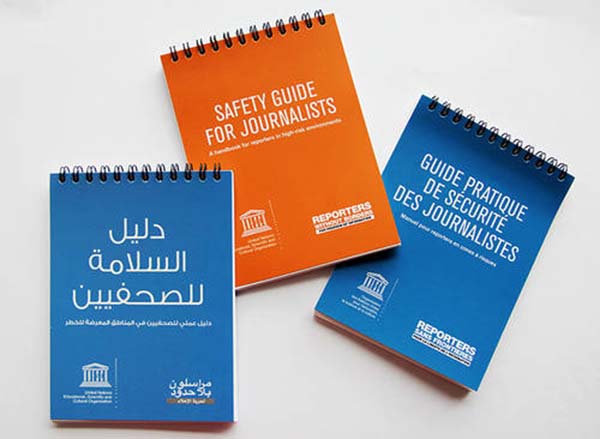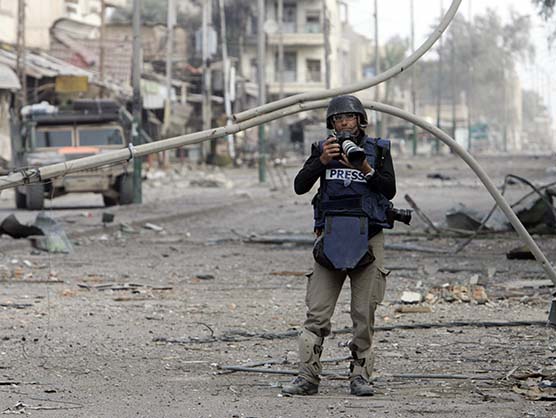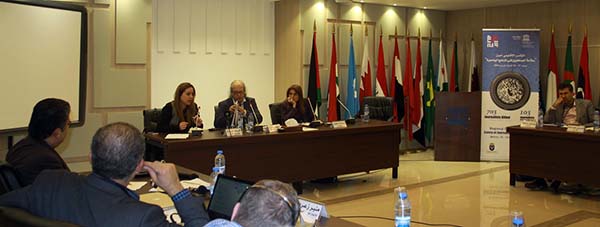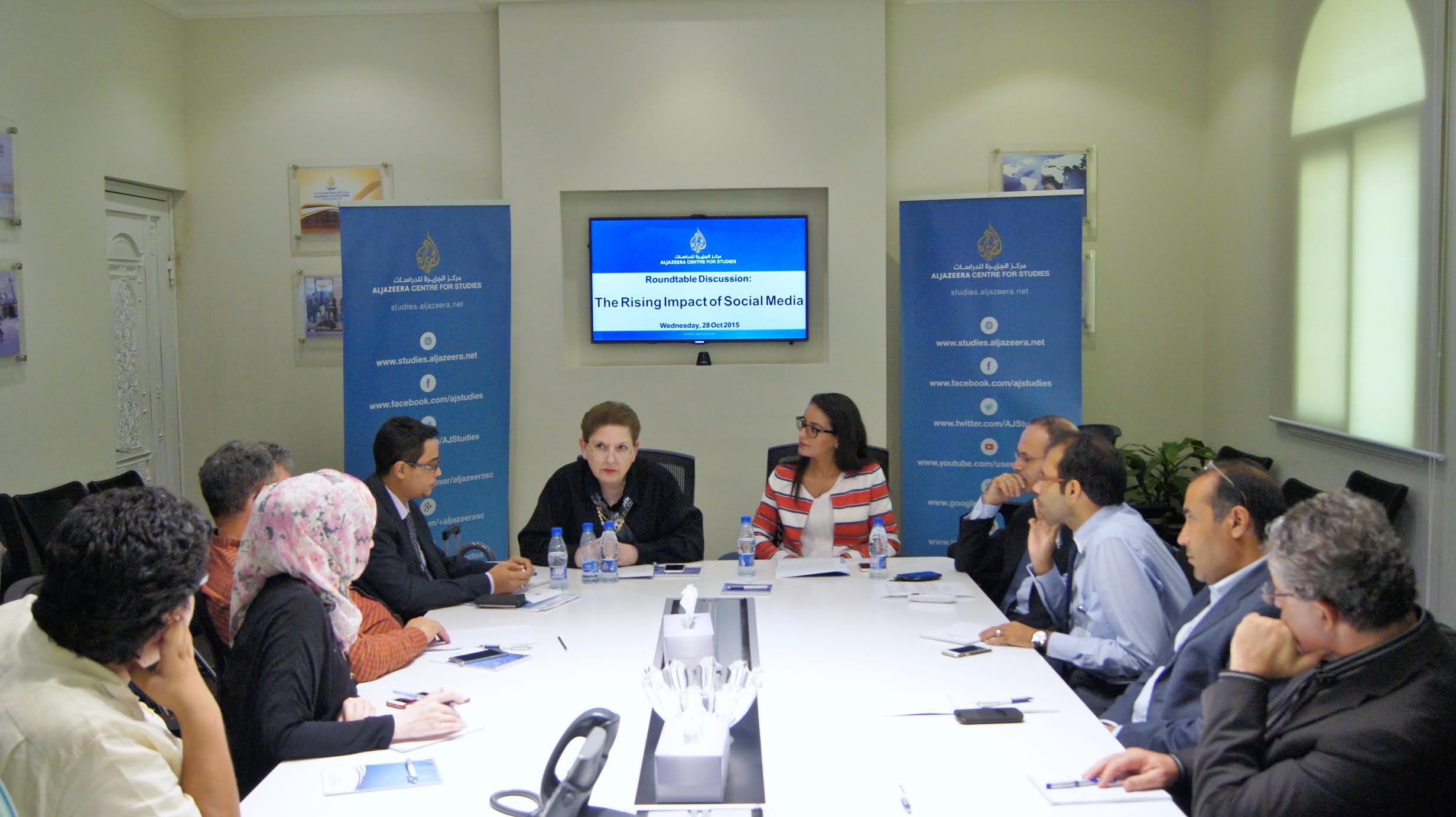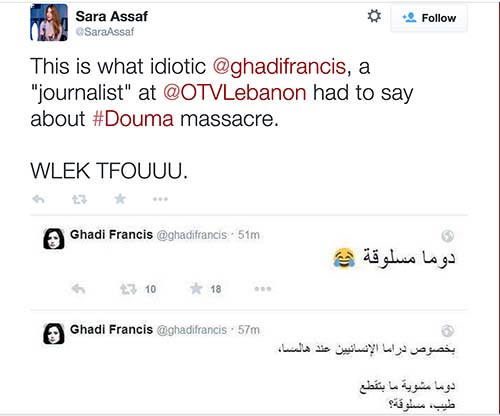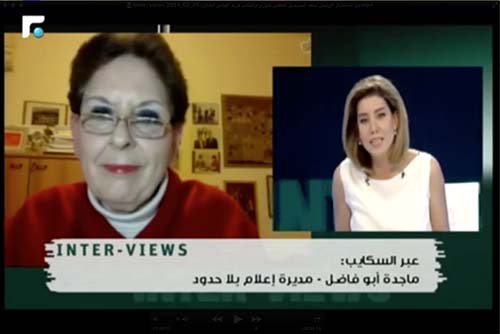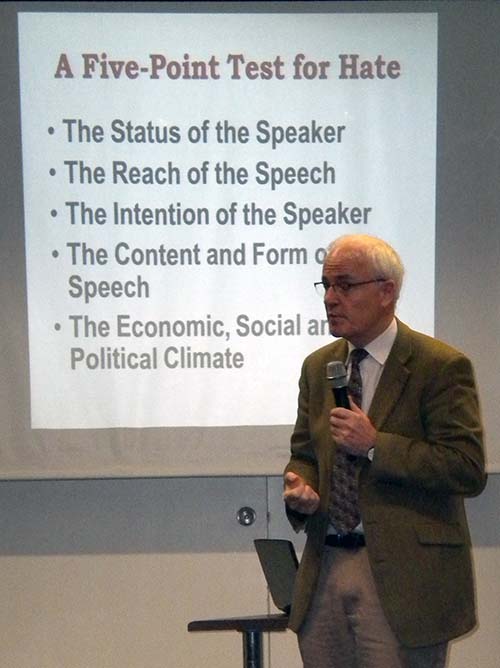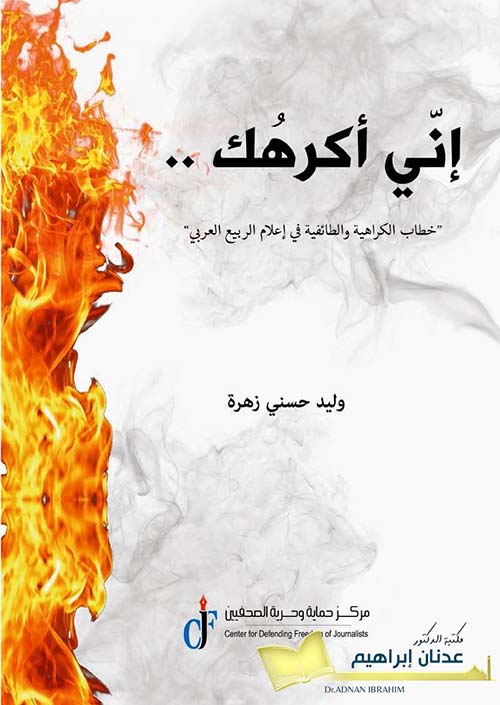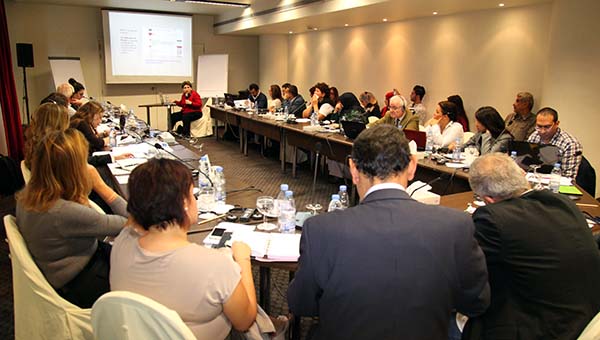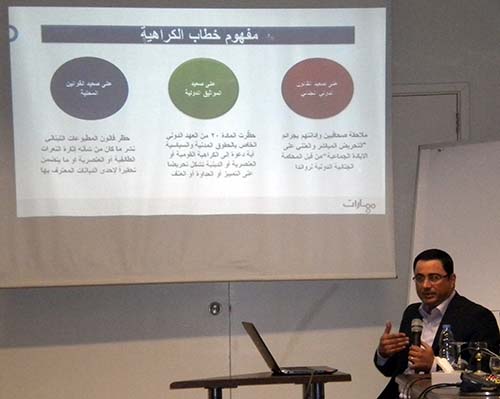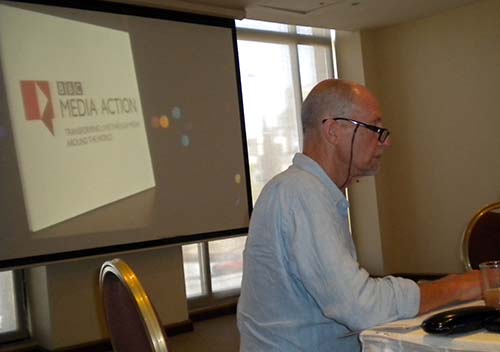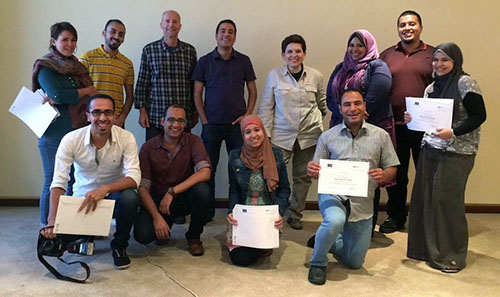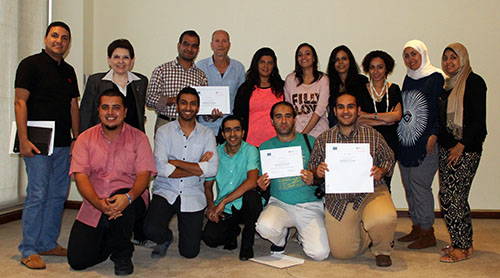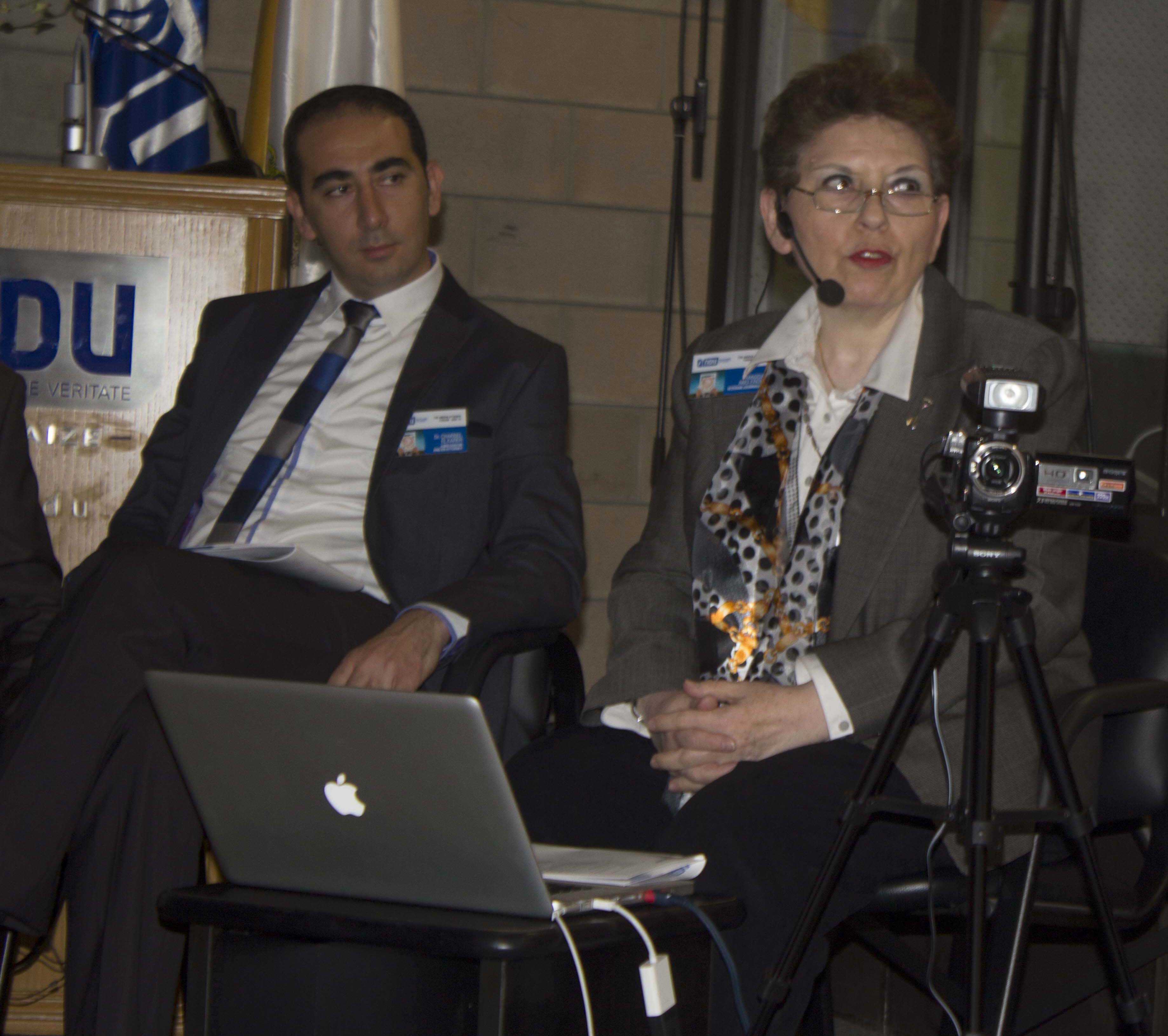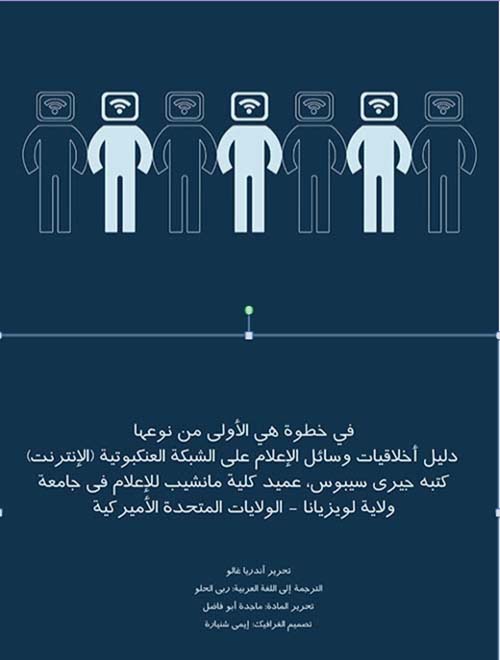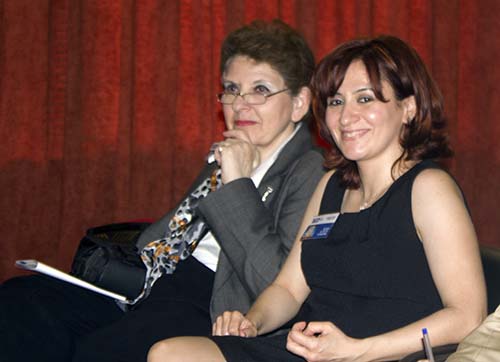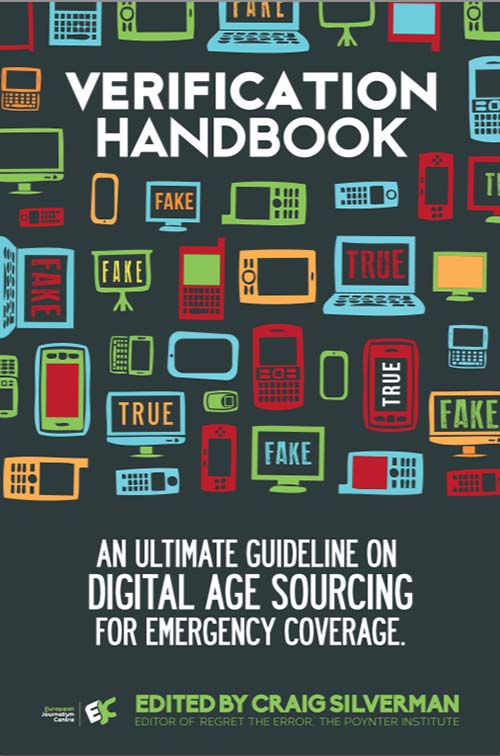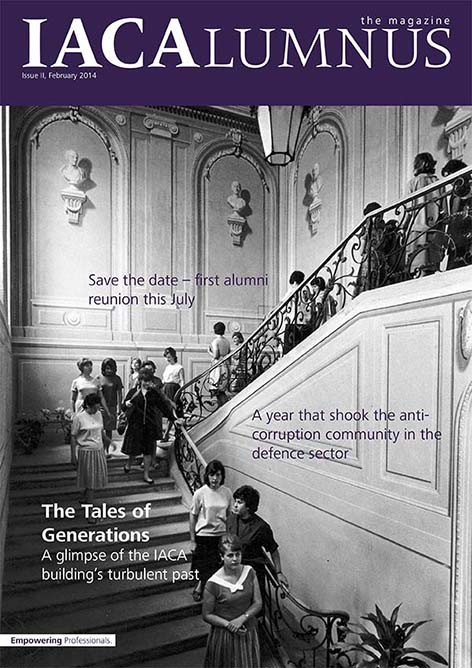Journalists from bureaus of the Saudi-based daily Arab News took active part in a virtual masterclass on how to cover COVID-19 as the pandemic continues to grip the world and demand effective media attention.
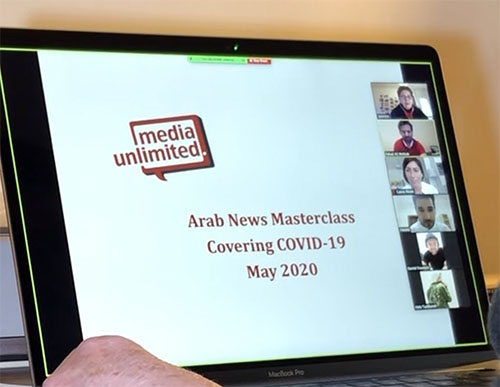
Covering COVID-19
Media Unlimited director Magda Abu-Fadil conducted three sessions in May 2020 for the reporters in Saudi Arabia, Dubai and Pakistan/India, with one journalist joining Saudi colleagues from London.
The teleconferenced training tackled working from home and how that has morphed into the journalists’ distributed newsroom. The masterclass emphasized the importance of the reporters’ mental and physical safety in lockdown situations, or on their occasional trips out.
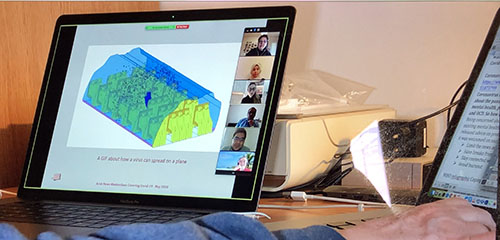
Dubai-based journalists shown the dangers of viruses spreading on a plane
The class delved into the medical aspect of the coronavirus by first making sure participants understood and conveyed the proper terminology in their coverage, to seeking advice from medical experts, to the role of the World Health Organization and other medical institutions, to learning how to filter through medical journals and studies.
Abu-Fadil also cautioned the journalists against being misled by dis-, mis- and mal-information disseminated through traditional and social media, or regular contacts with other people. She shared several case studies of dubious information and pressed upon her charges the importance of fact-checking, spotting and debunking deliberate or unintentional lies.
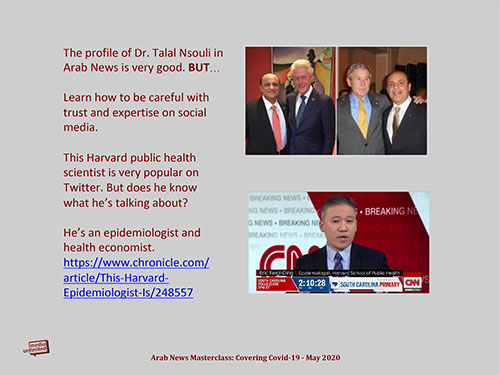
Tips on debunking disinformation
The reporters were armed with useful resources on where to obtain reliable data about COVID-19 and tips on protecting themselves.
The masterclass further explored the future of offices and activities while social distancing.
Of key importance was focus on the media in the COVID-19 crisis and how to cover the story ethically.
On the business front, Abu-Fadil discussed the impact on the world/regional economy, with a particular nod to the ever-growing gig economy. There were references to the supply chain, food shortages, hunger, poverty, social revolutions, border controls, and refugees.
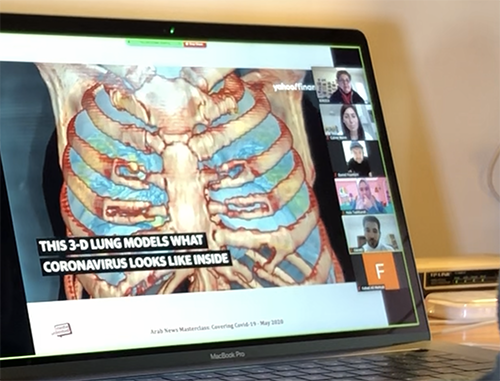
Getting the medical details right
A touchy but important subject is how to cover major religions’ handling of the coronavirus for which Abu-Fadil showed ample examples.
Other sub-topics were art, culture, education and kids with distance learning presenting the biggest challenge to educators.
But entertainment under lockdown has also taken on new meaning and the trainees were shown options to virtual cultural trips to museums and concerts, and, the ability to download free books and obtain free subscriptions for kids’ publications to keep them occupied.
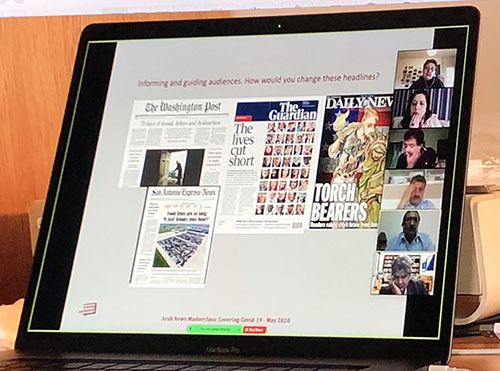
Pakistani and Indian journalists asked to change newspapers’ COVID-19 headlines
Last, but not least, Abu-Fadil turned to humor, saying Arab News journalists should infuse their coverage with some jokes to make light of COVID-19 in a bid to overcome the grim reality and used the example of a Lebanese newspaper that dedicates a whole page to funny items on the virus.







